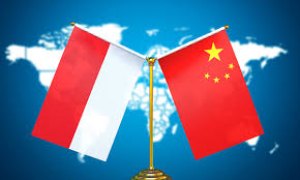Lippo commits to deliver Meikarta apartment units after DPR interferes
Property developer PT Lippo Cikarang Tbk and its subsidiary PT Mahkota Sentosa Utama (MSU) have committed to deliver the Meikarta apartment units to consumers, in the wake of the House of Representatives (DPR) members' interference that the company refund the buyers.
Lippo Cikarang President Director Ketut Budi Wijaya explained that a consortium of 10 Chinese investors had provided IDR 3 trillion (US$ 198 million) to develop Meikarta as an international-scale modern city. However, the consortium withdrew from the project and left it in limbo with the developer having to bear a ballooning debts.
"By the end of 2018, the foreign investors left the project and therefore we had to postpone it," Wijaya said on February 13, 2023, during a hearing with the House's Commission VI overseeing industry, investment and business competition.
Meikarta, which was launched on August 17, 2017, is located in Cikarang, Bekasi regency, along the Jakarta-Cikampek toll road. The developer expects to area to become a residential area of other industrial estates in Cikarang region such as Kota Jababeka and MM2100. In the initial plans the total investment for development of the township is about Rp 278 trillion (US$21.11 billion).
Refund process for consumers
The House Deputy Speaker Sufmi Dasco Ahmad said MSU should refund the consumers' money through a point-of-sale process. He added that 130 Meikarta consumers submitted requests for refunds that had been deposited because their units had not been completed.
"The management said that if you look at the flow of supply and demand, it will take no longer than 4 weeks or 1 month," he said.
Fellow lawmaker Mohamad Hekal also said that the consumers lodged their complaints because they had paid for the apartment units since 2018.
"They have the difficulties to demand for a refund but they were asked to change the property instead. When the problem has not been resolved and they decided to protest, the MSU sued them," he said.
Read also: Meikarta mega project offers a rosy picture but consumers get a bleak future
Lawmaker Andre Rosiade alleged that the consortium was a shell company of Lippo Group, although the allegation was immediately dismissed by Wijaya. He said Meikarta finally agreed to withdraw its IDR 56 billion lawsuit against the consumers after the developer was summoned by the House.
"However, in the lawsuit, the company demands that the consumers' the movable and immovable assets to be confiscated by the court. They are demanding their rights, but in the end the company intimidated them. Without the House's interference, it's impossible that Meikarta withdraw the lawsuit," Rosiade said.
Legal and financial problems surrounding Meikarta
The Corruption Eradication Commission (KPK) investigated the Meikarta project in December 2018 after then Bekasi Regent Neneng Hassanah Yasin received IDR 13 billion in bribes from Lippo Group executive Billy Sindoro. Lippo Group CEO James Riady was also questioned by the KPK for his role in the case.
Despite the graft case, Meikarta has continued the development of the project and marketed the property massively. However, in December 2022 the group requested a suspension of debt payment obligation (PKPU) at a court.
The PKPU ruled that MSU has to complete the construction of Meikarta apartment units and hand them over to 18,000 consumers until 2027.
"That is the commitment of Lippo Cikarang shareholders. As the consortium pulled out from the project, we cannot hope they will return," Wijaya said.
Since the MSU did not have the financial ability to finish the project, Lippo Cikarang decided to help its subsidiary by lending IDR 4.5 trillion.
MSU President Director Indra Azwar said that in 2022, the company already delivered around 4,800 units of apartments to the consumers, or 27% of the total 18,000 units. In 2023, MSU plans to deliver 2,200 units. The company also plans to deliver 3,400 units in 2024 and 3,000 units in 2025.
"By 2025, MSU will have delivered 83% of the total apartment units to consumers," he added.
Already have an account? Sign In
-
Start reading
Freemium
-
Monthly Subscription
30% OFF$26.03
$37.19/MonthCancel anytime
This offer is open to all new subscribers!
Subscribe now -
Yearly Subscription
33% OFF$228.13
$340.5/YearCancel anytime
This offer is open to all new subscribers!
Subscribe now






